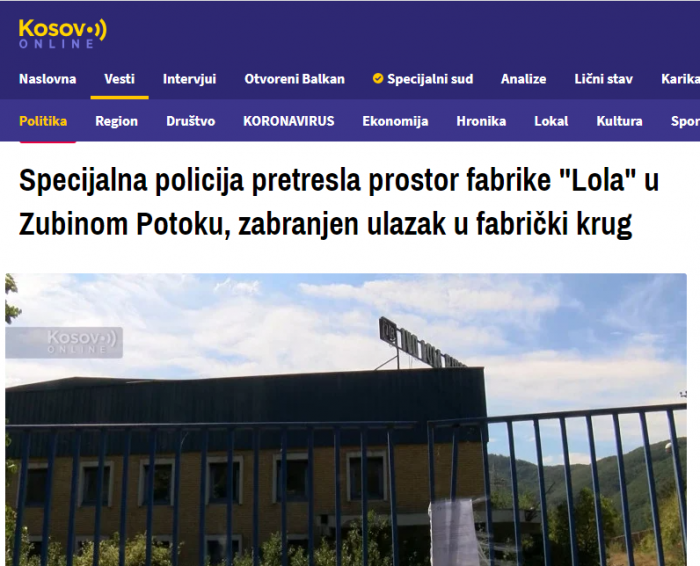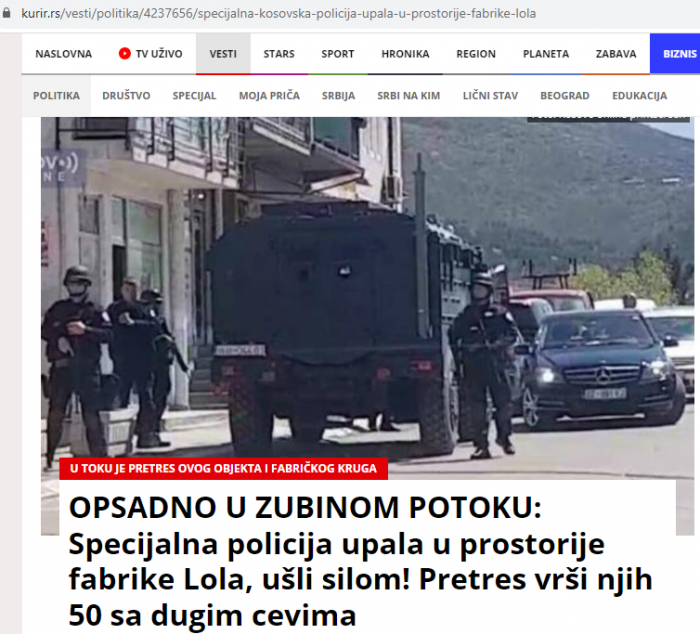Prepared by: Ridona Berisha
The Special Unit of Kosovo did not carry out a raid on the ‘Lola’ tool factory in Zubin Potok; they merely assisted the Kosovo Privatization Agency (AKP) at their request to enter the factory.
On September 8, 2023, Kosovo Online published an article with the title, “Special Police Unit Raided the Premises of the ‘Lola’ Factory in Zubin Potok, Entry to the Factory Area Prohibited.”

According to the article’s content, at around 10:00, members of the Special Unit of the Kosovo Police, accompanied by officials from the Kosovo Privatization Agency, forcibly entered the premises of the ‘Lola’ tool factory in Zubin Potok.
“The special forces, armed with long-barreled weapons, initially surrounded the factory area, more than 50 of them, and then entered and left the factory area shortly after 11:00,” among other things, the article states.
It has also been disseminated by other Serbian-language media outlets: Telegraf.rs, Politika.rs, Kurir.rs, Novosti.rs, Tv.most.info.

Following these reports, the Deputy Director of the Kosovo Police in North Mitrovica, Veton Elshani, responded by explaining that on Friday, they assisted the Kosovo Privatization Agency (AKP) in entering a factory in Zubin Potok, and the assistance that the Police provides to various institutions in the north is not unusual. According to Elshani’s statement to Albanian media, they had received a request from the AKP a few days ago, and the action was facilitated by the northern units. According to the AKP, the property they intervened in belongs to them, and the purpose was to verify certain equipment. Furthermore, Elshani clarified that this is the second time they have assisted the AKP in that location. Since the last time the property was sealed, the AKP requested it to be forcibly opened.
This action took place on September 8th, the same day as when the ultimatum for the release of a facility in the Bosniak neighborhood expired, which had been utilized by parallel institutions of Serbia until then. Although this decision was postponed for another two weeks, employees of the parallel structures were locked inside the facility in defiance of the decision to release it.
*This article is published as part of the Western Balkans Regional Initiative against disinformation. Western Balkans Anti-Disinformation Hub: exposing malign influences through watchdog journalism.



